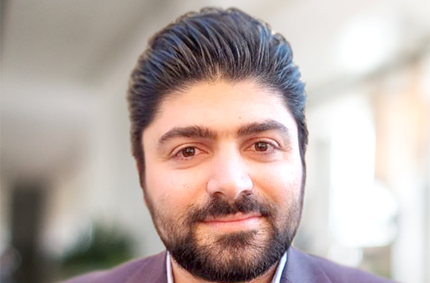As the global appetite for seafood continues to rise, the pressure on wild fish populations has sparked a critical shift towards sustainable aquaculture. This innovative approach minimizes environmental impact, bolsters food security, and supports economic growth. Top agribusiness consultants recognize the strategic importance of these farms in regional development plans.
In regions like the United Arab Emirates, fish is more than just a meal; it's a strategic food item listed in the UAE's National Food Security Strategy. This has positioned aquaculture not only as a viable alternative to traditional fishing but as a burgeoning sector poised to bolster economic growth and the social well-being of its citizens.
In Abu Dhabi alone, the aquaculture sector produces over 1.7K metric tons of seafood and provides jobs for nearly 2.5K people. With such an impact, it’s clear that fish aquaculture plays a pivotal role in balancing ecological concerns with commercial needs, demonstrating that sustainable practices can indeed drive prosperity. Below, we explore eight benefits of adopting sustainable fish aquaculture farms.
1. Expanding Food Options
Sustainable fish aquaculture farms contribute to food variety, offering consumers more seafood options. These farms produce species that are less commonly found in wild fisheries, enabling diets to expand beyond traditional staples.
The variety not only enhances nutritional intake for communities but also supports local cuisines with fresh ingredients. Moreover, the controlled environment of aquaculture ensures a steady supply of these diverse fish species throughout the year, irrespective of seasonal changes.
2. Supporting Wild Fish Populations
Sustainable aquaculture is critical to conservation by reducing the demand for wild-caught fish. As fish farms raise a large quantity of seafood, fewer fish need to be taken from the oceans, helping to stabilize marine ecosystems.
This approach allows overfished populations to recover and maintains biodiversity in our waters. Additionally, well-managed aquaculture systems can act as nurseries to support the replenishment of endangered species, further aiding in preserving our aquatic biodiversity.
3. Minimizing Environmental Footprint
Sustainable fish aquaculture farms are designed to minimize their impact on the surrounding environment. They achieve this through innovative farming techniques that reduce waste and prevent the degradation of local ecosystems.
For instance, integrated systems can recycle fish waste as fertilizer for plants, turning potential pollutants into valuable resources. These practices decrease the ecological footprint of aquaculture, making it a greener alternative to traditional marine and land farming methods.
4. Improving Water Efficiency and Conservation
Water conservation is a key advantage of modern, sustainable aquaculture systems. These systems often use advanced technologies to recycle and purify water, drastically reducing the amount needed for fish cultivation.
This is particularly important in arid regions like the Middle East, where water scarcity is a pressing issue. Moreover, careful water quality management prevents pollutants from entering local waterways, safeguarding both the aquatic life within the farms and the broader water ecosystem.
5. Helping Economic Growth and Job Creation
Countries in the Middle East, particularly the UAE, are already leveraging agri-tech to reduce their dependency on food imports, which in turn enhances economic stability. Sustainable fish aquaculture farms represent a natural extension of this strategy, offering substantial opportunities for further economic growth and job creation.
Sustainable fish aquaculture contributes to economic growth by generating diverse employment opportunities. The jobs range from hatchery technicians to sales personnel, boosting employment opportunities in areas where traditional fishing may no longer be viable. The farms also create demand for various support services, including feed supply, equipment maintenance, and veterinary care.
This industry also attracts investments and funding for research into sustainable practices, ensuring continuous innovation and improvement. The result is a robust sector that sustains itself and propels economic vitality in the communities it touches.
6. Creating Safe and Healthy Seafood
Sustainable aquaculture ensures that the seafood reaching our plates is both safe and nutritious. Ensuring safe and healthy seafood starts with careful farming practices, often guided by skilled farming consultancy services.
Aquaculture and fishery consultancy services can offer guidance on stringent health and safety protocols and guide these farms in monitoring and controlling the conditions under which fish are raised, minimizing the risk of disease and contamination. This level of oversight is often more comprehensive than that found in wild fisheries, leading to higher quality and consistency in aquaculture products.
The controlled environment allows for the optimal diet and health management of the fish, which enhances their nutritional value. Furthermore, the absence of pollutants like mercury, which can be a concern in wild fish, makes farmed seafood a safer option.
7. Protecting Biodiversity
Sustainable fish aquaculture farms play a crucial role in protecting marine biodiversity. These operations provide a controlled environment for breeding various species, which relieves hunting pressures on wild populations. As these farms can focus on breeding programs for endangered species, they contribute directly to restoring at-risk populations in natural habitats.
This helps maintain the ecological balance and supports the overall health of marine ecosystems. Sustainable practices also minimize habitat destruction, a common issue with traditional fishing methods. By fostering a diverse aquatic environment, sustainable aquaculture ensures species' survival and genetic diversity critical to marine life.
8. Offering Sustainable Seafood Alternatives
Sustainable aquaculture offers consumers seafood options that are environmentally responsible and ethically produced. These farms prioritize eco-friendly practices that maintain or increase productivity without compromising the planet's health. This approach includes using feed made from sustainable sources, reducing dependency on wild fish stocks, and employing energy-efficient technologies.
As a result, the seafood produced is abundant and supports the sustainability goals of reducing overfishing and preserving oceanic environments. For consumers looking to make responsible choices, these farms provide a clear alternative that supports both their health and environmental conservation efforts. This shift towards sustainable seafood is crucial for meeting global food demands while protecting ocean ecosystems for future generations.
Partner with Experts in Aquaculture and Fisheries Consultancy Services
Sustainable fish aquaculture farms offer significant benefits, including enhancing biodiversity, providing safe and nutritious seafood, and fostering economic growth through job creation. These farms support environmental sustainability and ensure a steady supply of diverse seafood products. As the demand for responsibly sourced seafood grows, the role of these farms becomes increasingly crucial in meeting global food needs sustainably.
If you're looking to harness these benefits for your aquaculture business, working with top consultants like Ollen Group can provide the expertise you need. Our consultancy services are tailored to help you increase productivity, navigate regulatory environments, and expand into new markets effectively in Saudi Arabia, UAE, and the Middle East & Africa region. Contact us today and start optimizing your aquaculture operations today.



